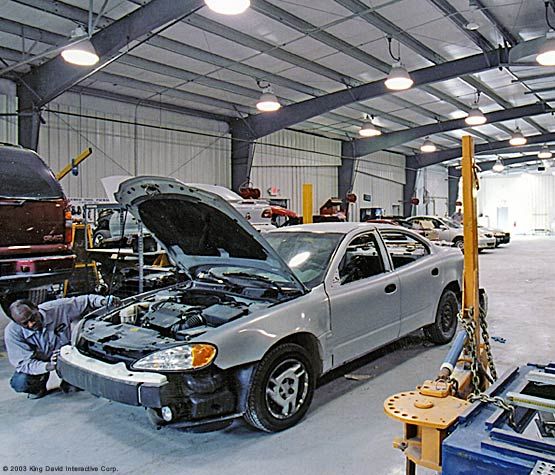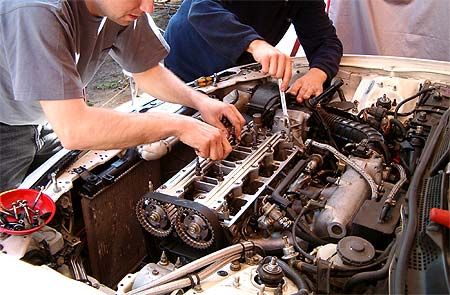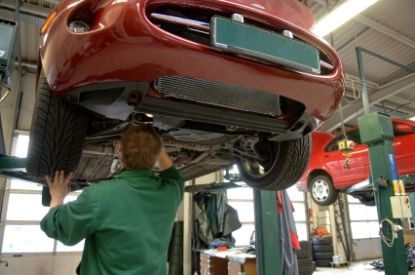Just imagine that your favorite car, the vehicle that has been with you for years, has just died. Whether it be a transmission failure or an engine issue, the vehicle that you need to run your life is now broken and might cost you.
Well, if you have an extended warranty on your vehicle, these situations many not be so bad. Sure, you’re going to be stuck at an auto garage for a few hours, but at least you won’t be broke when it’s all said and done.
While some might call these warranties a waste of money, those people haven't thought that statement through. Extended warranties are like insurance. Most of the time you'll never need it, but when you do it comes in handy.
A broken down vehicle is nothing new, as it happens to all of us. So, how can we make the experience less stressful and far less expensive? Extended warranties are usually the way to go.
Hit the jump to keep reading.
Why Do I Need an Extended Warranty?
Automotive repairs are very expensive, especially at dealers, so anything to save you a buck will help. Even if you only use it once for a big repair, just a replacement transmission, the warranty will pay for itself. Think about it, these transmission replacements can be around $2,500 or more. Air-conditioning equipment, which tends to break on Chrysler products, can cost around $700 and up as high as $2,000. Sure you can open your windows to stay cool, but how many of us are going to do that? Anything to help pay for those bills is a major benefit.
What should I take into consideration when buying these elongated warranties?
Well, do your best to estimate how many miles you plan on driving in a year and the price you’re willing to pay. Also, consider the length of time you plan on keeping the vehicle, as new vehicles usually don’t break as often as older ones. If you’re the kind of person who buys a new car every two years, extended warranties are not for you. If you plan on keeping a car for a long period of time, then extending your warranty may be a smart move. Even though they may seem expensive at first, they typically pay for themselves over the long haul.
It's also helpful to consider your vehicle's reliability. Japanese automakers tend to design vehicles that last for ages, while Chrysler and General Motors products tend to need for repairs. German cars are built to the highest quality, but when they do need repair, it will cost massive amounts of money.
Which Warranty is Right for Me?
Most people purchase these warranties right after they purchase a vehicle, but some extended warranties can be bought at a later time with no penalty. Most of the time when you buy a new vehicle you will be asked about these warranties. If you seem interested, you’re usually shown a few choices and one of them will usually be from the manufacturer, yet that might not be the case in some instances.
The biggest factor when deciding warranties for most people will be the cost. You can make it easier by adding the monthly warranty cost to the monthly bill for the vehicle and that should help spread out the cost. This makes the top of the line coverage easier to deal with. Sadly, dealers are always money hungry and some will raise the price of the warranty, just like they do on the price of their vehicles. Be sure to ask about both of these topics and remember that negotiations always yield results.
Depending on the dealership that you purchased the car from, they may or may not offer a manufacturer’s extended warranty. Some will only offer one or maybe two aftermarket warranties. While some of these warranties are just fine, you should always ask for the manufacturer's warranty, just to look it over to see what they offer. We can say from experience that some dealers will not offer a manufacturer-backed extended warranty, so you might have to call the automaker or keep pushing your sales person to gather up some information. Never accept no for an answer when attempting to find the best warranty. It might cost you a few extra hours at the sales desk, but it's worth it in the long haul.
The real question is, why don’t some dealerships offer the manufacturer’s warranty when they sell their vehicles? The reason, which is the reason for many things in the auto world, is money. Most dealers can make more by only offering one warranty and some even offer their own brand of contract, in which they have a financial interest. One more thing to consider is the fact that whoever is selling you the vehicle might also get a commission by selling you their warranty. Just be sure to explore all the options before committing.
Our Choice is the Manufacturer's Warranty
One of the reasons why we like to push the manufacturer's warranty is the fact that you can use it at any dealership nationwide, where as an aftermarket plan may limit your options.
Along with being able to use the warranty at any dealer, manufacturer's warranties are the easiest to deal with. These warranties are already on the payment program, so that should make your monthly bills easier to deal with. Most of the time you will never have to pay up front on a repair covered by the warranty, except for the deductible. Repairs are usually approved within minutes, but inspection might be needed for certain things, although that’s a rare occurrence.
The Nooks and Crannies of Warranties
Once you have decided on which warranty you want, there are usually different levels of coverage to choose from. Some are mileage based, time based, and some are for the amount of your deductible. As we stated earlier, first decide on how long and how many miles you are planning on putting on your vehicle. Some might need a higher mileage plan, while others won’t. There are plans to fit everybody’s needs; it just takes time to figure out the correct one for you.
After you’ve spent time decided which coverage option fits your needs, there are different levels of parts coverage to choose from. Some companies offer a variety of options, including silver, gold, and even platinum coverages. There are plans that will only cover the powertrain and plans that can cover pretty much everything.
Finally, you’ll need to decide what you want your deductible to be, if you’re given the choice. You may be offered a variety of options include $0, $50, or $100. There usually isn’t a massive payment difference between the $0 and the $50. Just remember that one massive repair will pay for this whole thing, so don’t be cheap when it comes to these warranties. One other thing to consider in the deductible department is if it’s going to pay per visit or pay per repair. The first means that you will have to pay a deductible every time you visit, where as the latter means that you’ll pay for every repair. Be sure to find this out, as it can be costly if you have to pay $50 for five different repairs.
Be sure to read over the contract to see if you get any additional benefits such as roadside assistance, tow service, and rental vehicles if needed. Some warranties offer a buy-back clause, which means that if you don’t use the warranty, you get your money back, or at least part of it.
Watch Out for Scams!
One more thing to remember is that you should never listen to radio and television advertisements claiming this and that. Be sure to read the contract over and over again before you buy, as these ads can be full of lies. When looking for the best extended warranty it helps to have great tools at your disposal. While we can’t recommend a company for you, we can tell you to go to CARCHEX, WarrantyDirect, and NationWarranty, as those sites can help you select the best plan that suits your needs. With these sites, you can easily get a quote.
Disclaimer: Article was written with help from the auto-warranty.info and carbuyingtips.com.





